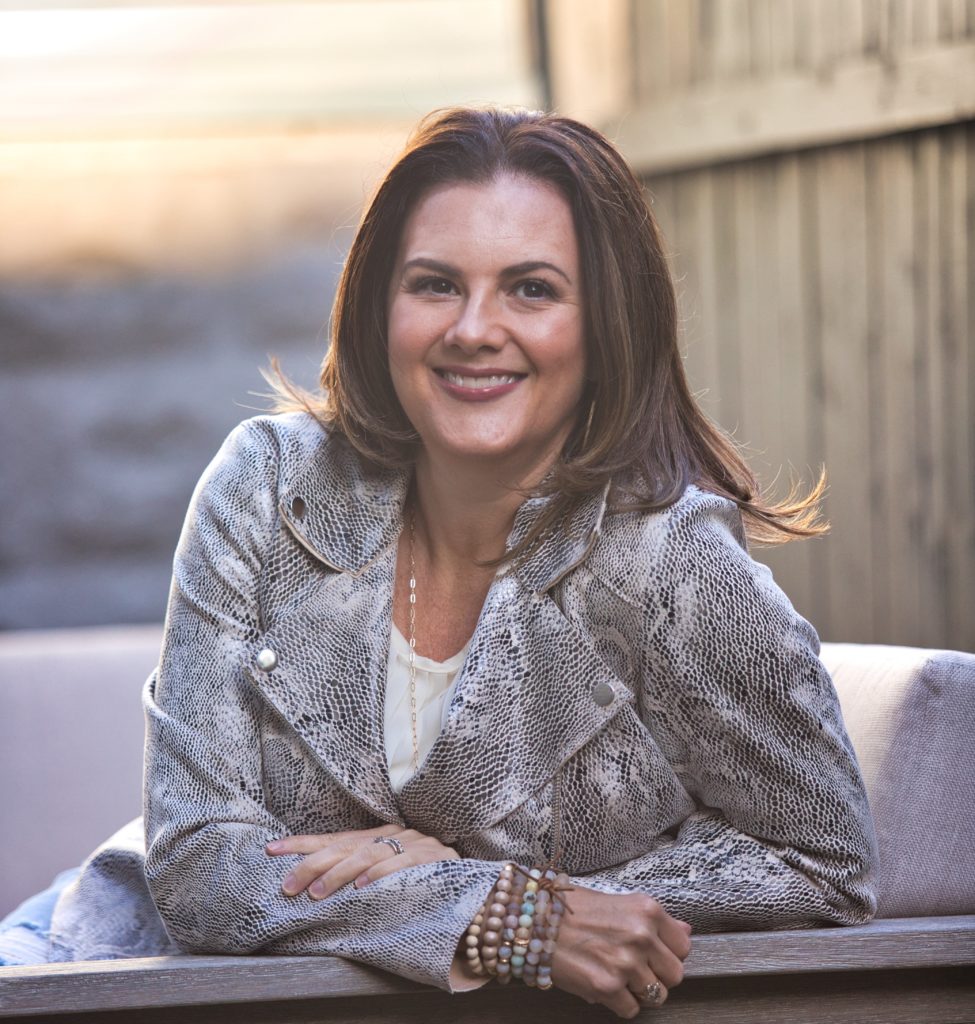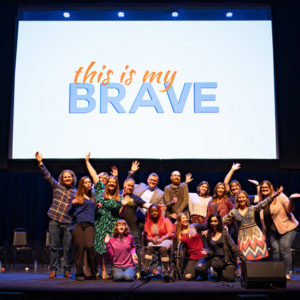National Counseling Awareness Month
by Christie Pearl
This blog post is part of This Is My Brave’s 2022 Awareness Days campaign. The month of April is nationally recognized as National Counseling Awareness Month. Our alum Christie Pearl (Boston Spring 2018) is sharing her story in written form to help us continue our mission to put faces and names to stories of recovery. We are grateful for our alumni community that continues to show up and lead the way in ending the stigma surrounding mental health conditions.
Hi! I’m Christie Pearl, and I’m a proud Brave alum of the Boston 2018 show. I’m also a licensed mental health counselor, and I’m thrilled to be a guest contributor for National Counseling Awareness Month.
We all know how important it is to increase awareness about mental health services, to reduce stigma about those services, to make them more equitable, and to work toward a future where everyone can access the quality mental health services they need and deserve.
Part of building that awareness is highlighting the people who deliver these services. For this National Counseling Awareness Month, I want to lift up and encourage all my fellow mental health counselors.
There has been a lot of talk recently in the counseling community about what it means to be a #moderntherapist.
You don’t need me to tell you how hard this past couple of years has been. We’ve been on the front lines day after day, session after session, of a global pandemic, social injustice, political chaos, and now a horrific war and humanitarian crisis. Most of us don’t need more discussion or explanation about what it has been like being a counselor during this time in our history.
What we do need is a way to feel better, and a way to continue supporting our clients to feel better.
We have an unprecedented opportunity to choose a new path. For me, being a modern therapist means I value my own wellness as much as the care I give to my clients. I believe counselors are being called to embody health and wholeness in ways we have never experienced before. I believe we were made to thrive.
Thriving as a counselor means I am no longer available for the burned out, underpaid, resentful and exhausted counselor role. Burnout is real. And many of us have been socialized and conditioned to keep giving even when it hurts. It’s hard to know how to hold all that we need to hold for our clients, all that we need to hold for our society and global community, and all that we need to hold for ourselves and the people we care about.
Feeling overwhelmed is a normal response to all the things we are holding, individually and collectively, right now. It’s a normal response for our clients, and it’s a normal response for us as counselors.
It’s time for a new paradigm. It’s time to reimagine how we function in our role as counselors, allowing ourselves to show up as our whole selves and honoring our worth as human beings. It’s about questioning how things have been, envisioning new possibilities for how it can be, and feeling empowered to get what we want for ourselves while we are serving others.
In order to step into this new paradigm, we have to do our own healing work as individuals and as a community. There are personal and systemic issues to address, and the solutions are multilayered and intersectional. Most of us became therapists at least in part – consciously or unconsciously – out of our own need for emotional and relational clarity and healing. Many of us were trained in institutions that at least in part – consciously or unconsciously – perpetuated biases including racism, classism, misogyny and an outdated martyr mentality that sometimes emphasized helplessness and codependence in our work. Most of us heard some version of “You don’t go into the mental health field to make money” from a trusted advisor or professor, or “You can’t go into private practice until you’re almost ready to retire.”
Even now we sometimes receive limiting messages about what we can expect back from the field that we give so much to, including how much of our time, energy, health and money we will need to sacrifice. It is time to reject occupational codependence along with its limiting messages and empower each other to expect – and get – more. It is time to take responsibility for how we have allowed ourselves to function, challenge our own misconceptions and fears, and begin to establish better boundaries around what we will and will not be available for in our work going forward.
So today I want to give my fellow counselors a big permission slip to take care of you.
Because the world needs you to be well. We need you to help us in these times of overwhelm. We need you to help us find ways to embrace what is and to meet the challenges of today.
An important part of this new paradigm is changing how we engage with our own well-being. I’m inviting my fellow counselors to get the help you need. To practice radical self-care – not the kind of self-care that you view as an activity that you do on the side, in the cracks and crevices of your life when you can squeeze it in, in order to recover from your overly demanding schedule. Compartmentalizing our wellness in this way repeats unhealthy survival strategies and perpetuates the devaluation of our worth. I propose that we move away from using the language of “self-care” and instead construct our work from a place of empowerment with healthy boundaries that demand our wellness be considered preventive as opposed to corrective, and allow us to thrive instead of just surviving. When we structure our work in a way that reflects who we are as a whole, we create a protective scaffolding around ourselves and our communities, and our sense of identity is strengthened.
I believe being a counselor is a calling. In order to truly fulfill that calling, counselors can lead by example and model what it means to truly be well.

About Christie:
Christie Pearl is a Licensed Mental Health Counselor and Certified EMDR Therapist and Consultant in private practice in Massachusetts and Virginia. She provides EMDR Intensives to help mission-driven entrepreneurs resolve emotional blocks from early family experience so they can achieve their potential and fulfill their purpose in their business.
You can learn more about Christie by visiting her website at https://christiepearl.com/.

